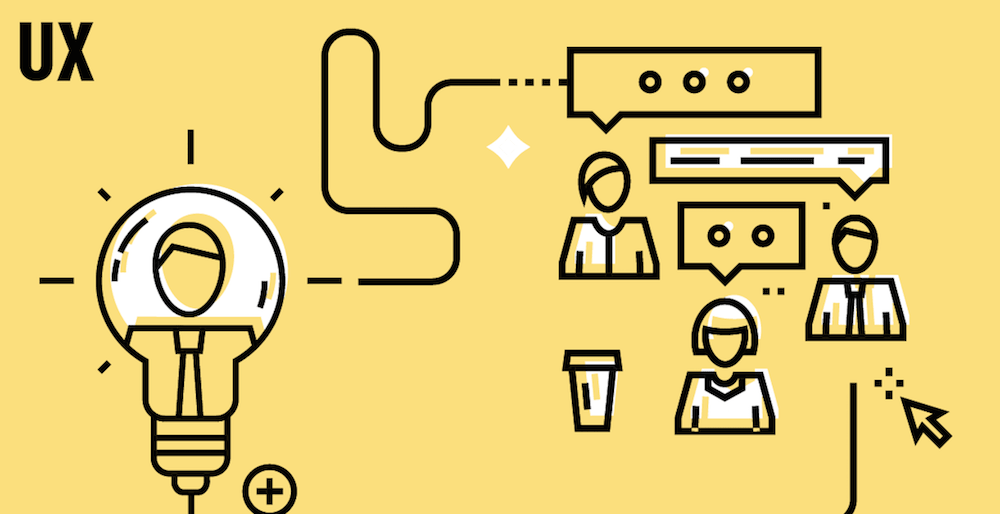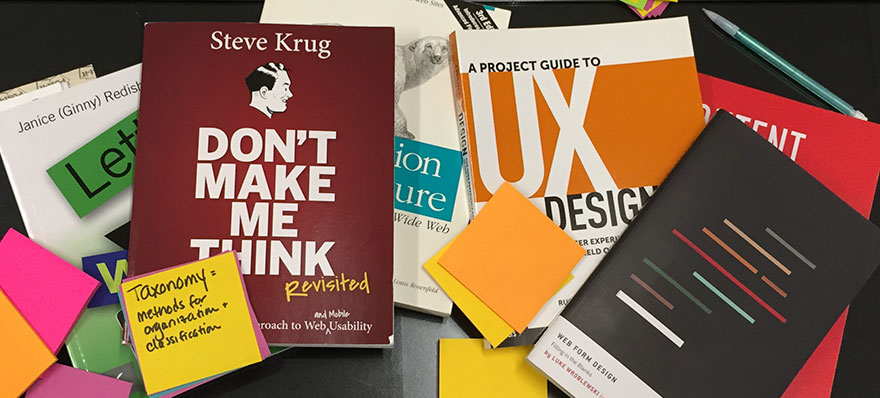How to Become a User Experience Designer?
UI/UX design, as the top spot in the top ten most influential IT skills, is very attractive for the layman and the novice designer both on job market prospects and salary. This is why so many people are eager to switch to be an interface designer or user experience designer. Somebody told me that you are also considering to change career. So you want to be a UX designer? Before you made the decision, I have some questions for you. How much knowledge do you know about user experience? Do you know how to become a user experience designer? Here is some experience summarized by predecessors in the user experience design industry for reference at first.
1. Do you know what a user experience designer does?

The terms of UX, UI, IA, and IxD are always complicated for layman or people who new to the design industry, so they cannot figure out what’s the difference between the terms. If you want to be a user experience designer, you have to know what is user experience, and what makes a good UX design.
User experience (UX) refers to a person's emotions and attitudes about using a particular product, system or service. It includes the practical, experiential, affective, meaningful and valuable aspects of human–computer interaction and product ownership. Additionally, it includes a person’s perceptions of system aspects such as utility, ease of use and efficiency.
2. Are you passionate about UX design?
Young people in the current era are flighty and impatient. So when you make a serious decision to become a user experience designer with no experience, it means that you have to learn a lot of knowledge in patience and immerse yourself in the design trends. So that to keep your enthusiasm of the design industry. The biggest secret to keep enthusiasm is keeping learning.
3. How much do you know about the principle of user experience? Have you read any design book?

It’s much better that you have some basic knowledge about the user experience design principle. But if you have no any basic knowledge, you may need to get an improvement on this. Because it’s very necessary to master the background information to be a good UX designer. Here is a full list of UI/UX design books.
The Design of Everyday Things - Donald A. Norman
Don’t Make Me Think - Steve Krug
The Non-Designer's Design Book - Robin Williams
The Elements of User Experience - Jesse James Garrett
4. Do you know which tool the UX designer use?
The empty theory is useless to make you earn for living. What the leaders and customers will like and more prefer to see is the real design, rather than the oral presentation about the design. The most practical method to present the demo to your leader and customer is showing the design draft to them directly. It’s the most intuitive way to tell your design ideas and the logic of the page and components. Learning the principles, and practicing the design tools, that’s the best way to save your time. What are the best mockup & wireframing design tools & Apps for UI/UX designers? Here.
Invision - Design better, faster, together.
Mockplus - Prototype faster, smarter, easier.
Axure - Design the right solution.
Justinmind - All-in-one prototyping tool for web and mobile apps.
Uxpin - The full-stack UX design platform.
5. Where to find the inspiration for design?
In addition to the principle and design tools, the other key element is the inspiration. The predecessors also summarized some UI/UX design inspiration websites covered pictures, icons, and fonts, as well as the famous community like Behance and Dribbble.
6. Do you have a design portfolio that packs a punch?

Beat the competition–Marc Anderson reveals how to make your portfolio stand out from the crowd.
7. Where should you apply for your first job/internship?
The first job/internship is a good chance to learn and improve yourself. So if you make up your mind to be a user experience designer, try to land your first job as a UX designer in a big company such as Google, Apple, Facebook, and LinkedIn. They have a well-operated department for design. You will get a big improvement on how to become a user experience. Moreover, you can also get the chance to be involved in the design process and solving problems. You know, there are many great designers in these great companies. All in all, you have to make yourself become valuable, that’s the primary purpose to get a job/internship in the big companies.
Conclusion
After reading these questions about user experience, I believe you have a better understanding on how to become a user experience designer. If your choice is "Yes, I do", you also should realize that there is nothing "right" or "the best" way to be a designer in a short while. So, what’s idea on your mind?
Comments
Post a Comment